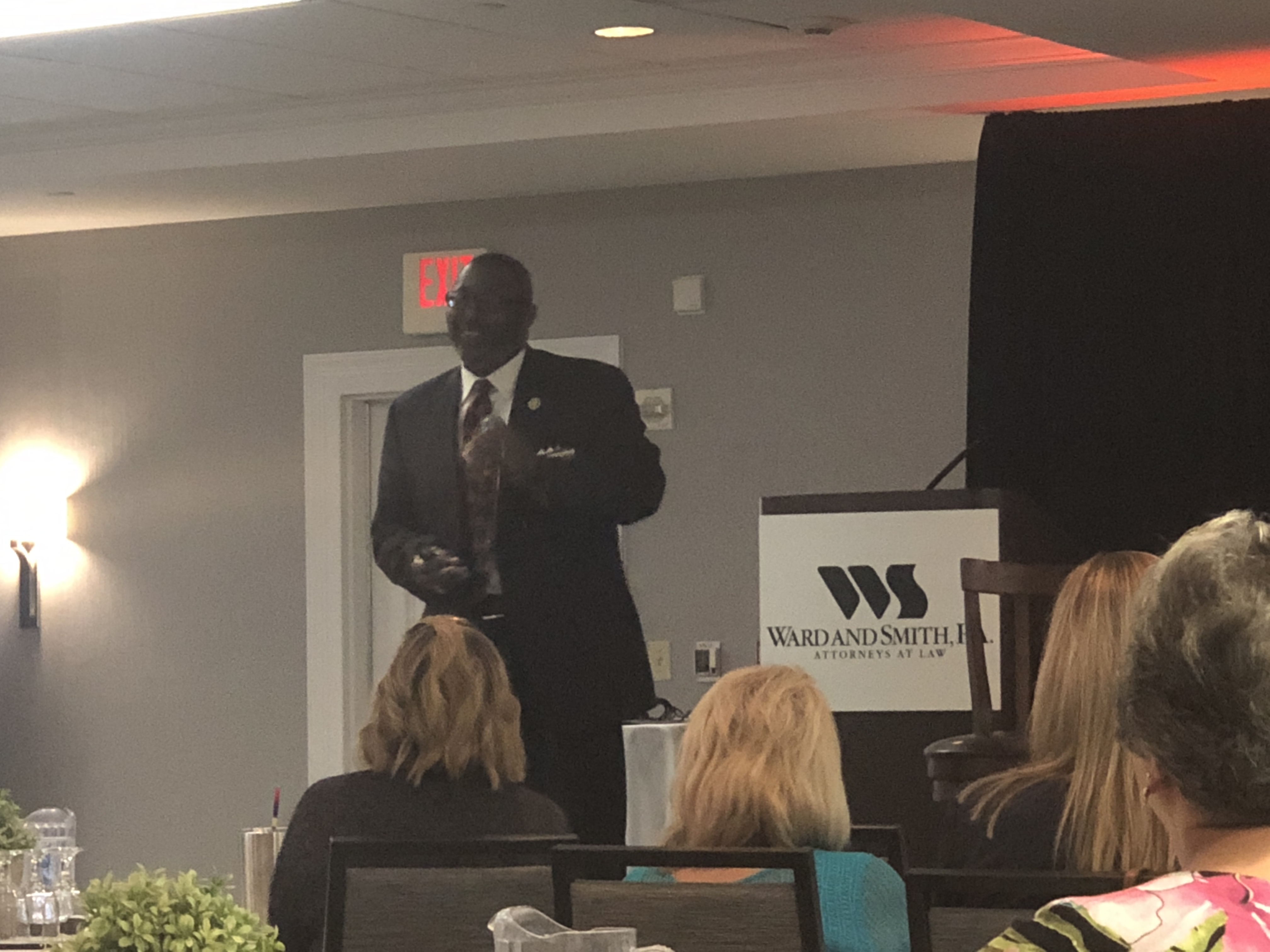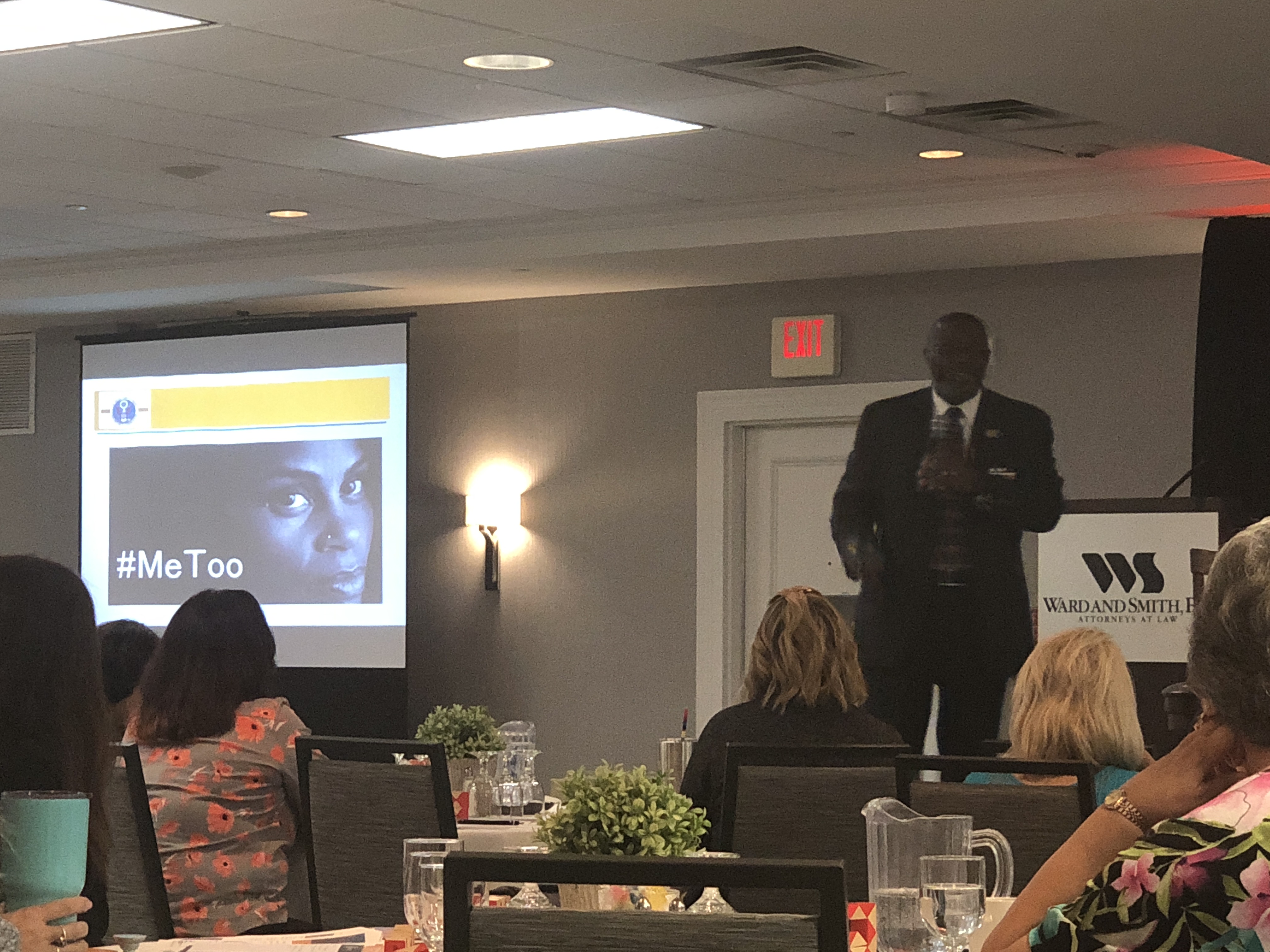This is the first in a series of articles summarizing key topics discussed at Ward and Smith's 2018 Employment Law Symposium.
Recently, Thomas M. Colclough, deputy district director of the United States Equal Employment Opportunity Commission's ("EEOC") Charlotte District Office ("District Office") spoke at Ward and Smith's 2018 Employment Law Symposium.
The Equal Employment Opportunity Commission's Strategic Enforcement Areas
The EEOC is the federal agency that administers and enforces laws regarding workplace discrimination. The District Office covers all of North Carolina, as well as parts of South Carolina and Virginia.
Colclough explained that the EEOC currently focuses on these six strategic enforcement areas:

- Eliminating barriers in recruitment and hiring.
- Protecting immigrant, migrant, and other vulnerable workers.
- Addressing emerging and developing issues.
- Enforcing equal pay laws.
- Preserving access to the legal system.
- Preventing harassment through systematic enforcement and targeted outreach.
In addition, the District Office is also focused on issues related to employment discrimination against applicants and employees with mental health issues.
The District Office Remains Busy
Colclough told attendees that the District Office receives more than 90,000 complaints annually, and it seeks to handle those efficiently—working toward a goal of resolving 35-40 percent of complaints within five days.
Colclough reminded those in attendance that the EEOC's vision is "respectful and inclusive workplaces with equal employment for all." And while that means the EEOC takes complaints and enforcement seriously, most claims do not lead to lawsuits, and resolution does not always involve monetary compensation.
"We’re looking to make a person whole," Colclough said, "but we’re not trying to make them millionaires."
He reported that last year, the District Office filed just seven lawsuits. He added that, in most cases, if a complaint is valid, officials from the District Office try to settle it by negotiating an appropriate solution with all of the parties involved.
The Workforce and Workplace Issues Are Different Today
Colclough stated that employers need to keep in mind that the workforce is much more diverse than it was a generation ago.
"The North Carolina I grew up in is not the North Carolina that exists today," Colclough said, "It’s a completely different place."
Colclough cited recent news coverage of cases involving discrimination practices. "As we watch the TV these days, employers have to ask themselves, 'What is your brand image? How do you see yourself? How do other people see you?'"
Among the hot-button topics of a diverse workplace are those related to LGBTQ (lesbian, gay, bisexual, transgender, and queer/questioning) employees. "There’s still a lot of controversy," Colclough said, noting that some issues are still playing out in the courts.
Another priority for the EEOC is equal pay for men and women. "We’ve got to take a look at our payrolls, how we pay people," Colclough said. He noted that it's legal to pay men and women different wages—but only where there is an appropriate reason for it that is not based on sex. Under the Equal Pay Act, different pay levels can be justified based on seniority, merit, incentives, and "a reasonable factor other than sex."
Beware of Retaliation
Often employers get in trouble in part because of how they respond to a complaint about workplace discrimination.
"What’s the No. 1 basis of discrimination in America? Retaliation," Colclough reported. He emphasized that employees should not feel they will be discriminated against if they complain about an employment issue. He explained that the EEOC focuses on those cases in part to protect employees’ access to the legal system.
Sexual Harassment and Gender Discrimination
 With the #MeToo movement putting sexual harassment and gender discrimination on the front page more and more often, the EEOC is focused on helping employees who may have been harassed.
With the #MeToo movement putting sexual harassment and gender discrimination on the front page more and more often, the EEOC is focused on helping employees who may have been harassed.
"Do we really think those harassment issues are just on TV?" Colclough asked. "The thing that I would say to employers is you’ve got to dust off those policies and practices you have in regard to harassment."
Colclough noted that training is key: "Let them know what the rules of the game are," he stressed.
-----------------------------------------------------------------------
More insights from Ward and Smith's 2018 Employment Law Symposium:
Preventing and Dealing with Workplace Harassment
Key 2018 Legal Updates for Employers
Real Life Lessons in Workplace Diversity








